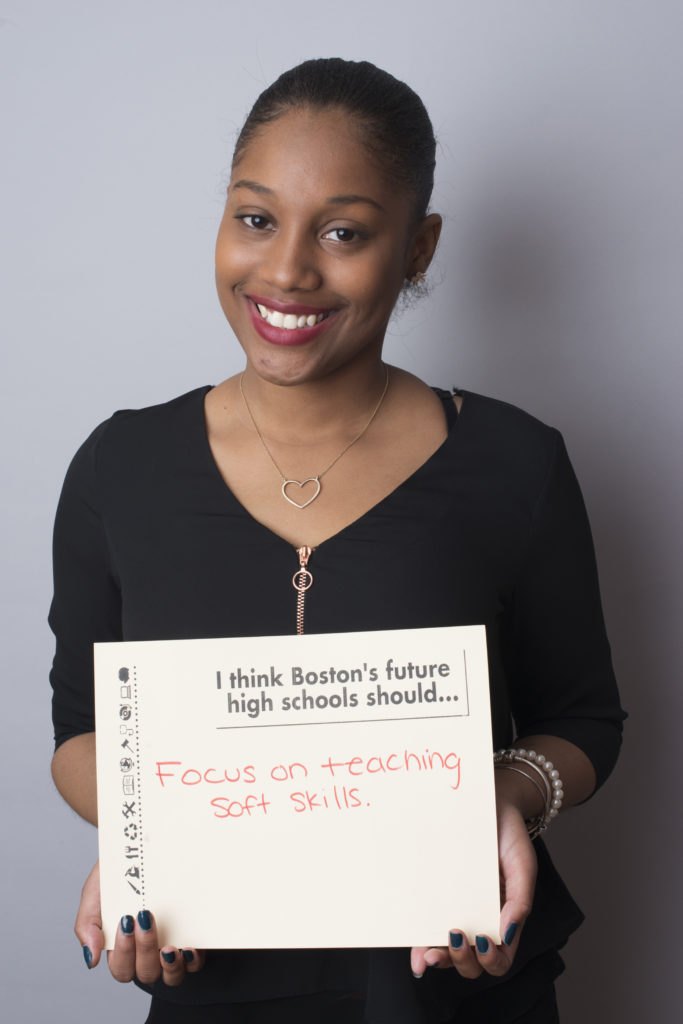
By Hillary Machado
Imagine Eduardo, an eighteen-year-old high school graduate with a 3.7 GPA that has an impressive resume. He was accepted into all the colleges that he applied to, and wants to get a summer job. He emails his resume to a few companies and gets interviewed for each of them, but he never gets hired. Why not? There is a huge gap in his education and he doesn’t even know it. He lacks soft skills like leadership and communication skills. These soft skills are what help to define a well-rounded and educated individual.
At the Margarita Muniz Academy we have a grading system called RAICES (the Spanish word for “roots”) that takes these important soft skills into account. RAICES stands for responsibility, advocacy, integrity, compassion, excellence and stretching, and each category is graded on a scale of 1 to 4. For example, students get the opportunity to be a part of student-led conferences (an SLC), where they are able to communicate their grades to their parents. This shows responsibility, advocacy, and stretching. Our school strongly encourages us to develop these real-life skills because it will only benefit us in the future.
The Margarita Muniz Academy also offers standards-based grading with a focus on revision. This shows students the meaning of excellence, because working hard for something and being persistent is very important. Both products and performance are important. We are asked to demonstrate mastery of learning targets, but we are also asked to be part of a small group of peers—called crews—that meet twice a week that allow us to focus on learning soft skills. Emphasizing both learning targets and crew, our school teaches students how to set goals, deal with failure, communicate effectively, and make good decisions. There is a lot more to school than learning how to read, write, and do math. School prepares us for real-life scenarios.
In “Soft Skills Are Hard to Assess,” Lou Adler claims that soft skills can help people get a job and better prepare themselves for interviews.[1] I applied to Victoria’s Secret knowing the appropriate skills that would help me get the job. When I first walked in I had a positive attitude and was very engaged. Some of the soft skills that I needed to get hired and stay in that position were time management, teamwork, and collaboration.
Kyle Hartung is a graduate from Harvard School of Education who is also involved in an organization called Jobs for the Future. During an interview I had with Hartung, he talked about the importance of soft skills because they help people to efficiently communicate with others, which is an important trait of leadership. Jobs for the Future also provides real authentic opportunities for students to do things that really require them to collaborate with others.[2]
I propose that teachers integrate soft skills into their curriculum by introducing project- based learning, a teaching method to gain skills and knowledge by working for a period of time with complex questions and challenges.
I propose that teachers integrate soft skills into their curriculum by introducing project- based learning, a teaching method to gain skills and knowledge by working for a period of time with complex questions and challenges. This idea creates an environment where students are encouraged to make mistakes and learn from them. Without mistakes there is no creativity. The ability to keep working despites the mistakes teaches grit. Students learn to overcome future challenges and are better able to use critical thinking to actually fix their mistakes.
My recommendation is for there to be courses teaching soft skills such as RAICES in every Boston Public School. This will give an understanding of how important it is for every field of work to have responsibility, advocacy, integrity, and compassion towards other people.
You must be logged in to post a comment.